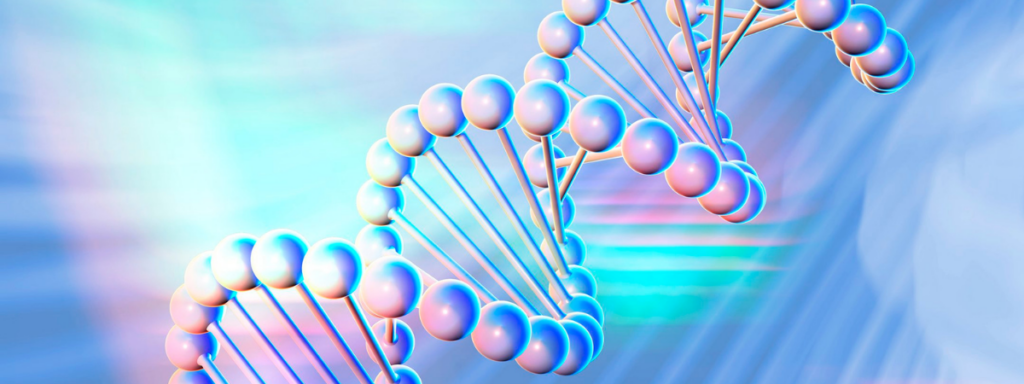The Complete Guide to AP Biology: Course, Tips & How to Ace It
目录
Course Overview
Among the various Advanced Placement courses, AP 生物 holds a special place for students interested in life sciences, medicine, and research. It’s rigorous, content-rich, and requires both conceptual understanding and practical skills.
Many students ask: “What do you learn in AP Biology in high school?” or “Is AP Bio the hardest AP?” This article answers those and more.
What Is the AP Biology Course?
AP Biology is essentially a college-level introductory biology course offered at the high school level, designed by the College Board. Students cultivate their understanding of biological processes through inquiry-based investigations, exploring topics such as evolution, cellular function, energy, genetics, ecology, and systems interactions.
The course framework is organized around Big Ideas and Science Practices. Emphasis is placed on not just knowing facts, but applying reasoning, experimentation, data analysis, and interpretation.
To support this, at least 25% of class time must be dedicated to laboratory investigations or hands-on experiments. Students are expected to design experiments, collect data, analyze results, and communicate findings.
Recent updates for the 2025–26 framework clarify and reorganize content to improve logical sequencing and reduce redundancies in topics like photosynthesis and respiration.
Prerequisites generally include prior high school biology and chemistry.
In short, AP Biology is not just memorizing terms—it is learning how living systems work and change through experimentation and critical thinking.
Exam Format & Structure
If you want to ace AP Biology, understand how it’s assessed:
Section I – Multiple Choice (MCQ):
~60 questions
50% of your score
Mix of individual and “set-based” MCQs (linked to data/figures)
Section II – Free Response (FRQ):
6 questions total: 2 long, 4 short‐answer
50% of your score
Requires experimental design, data analysis, explanation, and justification
Scoring & Weighting: The MCQ and FRQ scores are combined (scaled) to produce the final AP score from 1 to 5.
Units also carry exam weighting ranges. For example:
Chemistry of Life: ~8–11%
Cellular Energetics: ~12–16%
Natural Selection: ~13–20%
Ecology: ~10–15%
Therefore, while all units matter, getting strong in high-weight units helps.

AP Biology Course Unit Breakdown & Key Concepts
Here is a breakdown of the eight main units in AP Biology and what students should master. (Based largely on College Board’s framework)
| Unit | Major Themes / Topics | Approx. Exam Weight |
|---|---|---|
| 1. Chemistry of Life | Water properties, macromolecules, pH, bonding | 8–11% |
| 2. Cell Structure & Function | Organelles, membranes, transport | 10–13% |
| 3. Cellular Energetics | Enzymes, photosynthesis, respiration | 12–16% |
| 4. Cell Communication & Cell Cycle | Signaling pathways, cell cycle, regulation | 10–15% |
| 5. Heredity | Meiosis, Mendelian genetics, chromosomal inheritance | 8–11% |
| 6. Gene Expression & Regulation | Transcription, translation, regulation mechanisms | 12–16% |
| 7. Natural Selection / Evolution | Evolutionary theory, population genetics, speciation | 13–20% |
| 8. Ecology | Population, community, ecosystem dynamics, nutrient cycling | 10–15% |
Within each unit, students are expected to engage in Science Practices—skills like:
Asking testable questions
Designing experiments
Data analysis & statistical reasoning
Constructing arguments based on evidence
Connecting data to broader biological principles
Laboratory investigations are woven throughout, aligned to unit topics, so students gain hands-on experience corresponding to the conceptual themes.
When Should You Take AP Biology?
AP 生物 is not typically the first science AP students take. It requires a solid foundation in high school biology and chemistry. Students should have:
Biology (Intro or Honors): To establish core understanding of cells, heredity, and ecology.
Chemistry (Intro or Honors): Because AP Bio covers biochemistry, energetics, and lab skills that rely on chemical knowledge.
Algebra proficiency: For data analysis, graphing, and statistics used in labs and FRQs.
Best Grade to Take AP Biology
10th Grade (Sophomore Year): For advanced students who completed honors bio/chem in middle school or freshman year.
11th Grade (Junior Year): Most common timing. Students have built maturity and science background, but still early enough to feature AP Bio results in college applications.
12th Grade (Senior Year): Works if scheduling conflicts occur, though colleges will only see in-progress coursework during application review.
Recommendation: Most Ivy- or STEM-bound students should target 11th grade. This allows them to pair AP Bio with AP Chemistry, AP Calculus, or AP Statistics, showing rigorous STEM preparation.
After AP Biology: What Comes Next?
Finishing AP Biology opens multiple opportunities for further growth:
Advanced Coursework
AP 化学 or AP Physics for broader STEM depth.
AP 心理学 for biological/behavioral sciences.
AP 环境科学 for ecology-focused students.
AP Research (Capstone) to expand biology knowledge into a long-term research paper.
Research Opportunities
School-based independent research projects guided by teachers.
University lab internships (summer or part-time).
Online research programs like IvyMax FRIP (Faculty Research & Innovation Program), where students work directly with professors on biology-related topics.
学术竞赛
Science Fair (ISEF-affiliated fairs): Apply AP Bio knowledge in experimental projects.
USA Biology Olympiad (USABO): For students with strong conceptual mastery.
Regeneron ISEF or STS: For research-driven students.
Extracurricular Pathways
Pre-med clubs or health science clubs: Apply knowledge to medical fields.
Environmental or conservation projects: Use ecological knowledge for real-world issues.
Volunteering in hospitals, labs, or science museums: Build applied experience.
In Summary: AP Biology is not just a course—it’s a gateway. Students can leverage it to pursue research, competitions, and advanced studies, demonstrating to colleges that they don’t just take hard classes but also apply their learning in meaningful contexts.

Study Strategies, Planning & Challenges
Effective Study Strategies for AP Biology
Master big ideas first — Focus on the conceptual frameworks (evolution, energetics, information, interactions) before the details.
Active learning through diagrams and flowcharts — Visualizing processes like glycolysis, DNA replication, or signaling cascades helps retention.
Regular practice with FRQs and old exams — Simulate exam conditions; review explanations thoroughly.
Use lab work as reinforcement — Try to replicate or simulate experiments; keep detailed lab notebooks.
Group study with peer discussion — Explaining topics to others solidifies your understanding.
Spaced repetition & cumulative review — Regularly revisit earlier units to avoid forgetting.
Self-testing on data interpretation & graphs — Many questions ask you to analyze novel data sets.
Use reputable resources — AP Classroom, College Board, Fiveable, Albert, textbook supplements.
Planning Your AP Biology Year
Pace your coverage: Spread 8 units across 2 semesters; leave time for review.
Front-load difficult topics: Start mitochondria/respiration earlier, so you have buffer time.
Schedule practice exam blocks: Simulate real exam timing (90 min MC + 90 min FRQ).
Integrate labs with conceptual units: Tie labs directly to topics you are learning.
Mid-year review cycle: Reserve a few weeks mid-year for cumulative review before tackling harder units.
Final months count most: Last 8–10 weeks should shift heavily toward practice and synthesis.
FAQs
Q: What do you learn in AP Biology in high school?
You study how life works—from molecules to ecosystems. Topics include cellular processes, genetics, evolution, ecology, and information systems, all investigated through inquiry-based labs.
Q: What’s the best way to study for AP Bio?
Start early, focus on understanding big ideas rather than memorizing, regularly practice FRQs and previous exams, visualize processes, and integrate lab inquiry with concept study.
Q: Is AP Biology hard in high school?
AP Bio is challenging but fair. It demands conceptual thinking, scientific reasoning, and lab skills rather than just memorization. Many students succeed with consistent preparation and good planning.
Q: Is AP Bio the hardest AP?
It depends on the student. Some find it toughest due to breadth and lab work; others consider AP Chemistry or Physics harder. What matters more is your interest and commitment in biology.
Q: How many labs do I need to do?
At least 25% of instructional time must be hands-on lab work, as required by College Board. Labs should support inquiry and align with science practices.
Q: Can AP Biology help me skip college biology?
Yes, many colleges grant credit or allow placement into advanced biology courses for high AP scores (usually a 4 or 5). Policies vary by institution.
Q: When is the best time to take AP Biology?
Most students take it in 11th grade, after foundational biology and chemistry. Some advanced students take it in 10th grade if well prepared.
Q: How should I balance AP Biology with other APs?
Pair AP Bio with compatible courses (e.g., AP Chemistry, AP Calculus) rather than loading too many high-skill APs in the same year. Manage workload so lab reports or FRQs don’t conflict with other demanding courses.
Start Your AP Biology
AP Biology is one of the most rewarding APs if approached smartly. It challenges you to think like a scientist, connect across topics, and articulate understanding. To make the most of it:
Plan your timeline and pace carefully
Use labs as opportunities to deepen understanding
Treat FRQ practice as a core part of study
Use multiple resources and test yourself often
With consistent effort and smart strategy, students can not only score well on the AP exam but also build skills that carry forward into college science studies.
提交表单即代表您同意接收 IvyMax 的最新资讯和课程信息。您可以随时通过邮件底部的 SafeUnsubscribe® 链接取消订阅。
对我们的项目感兴趣?
请填写表单,我们会尽快回复您,并提供详细信息,解答您的问题!

